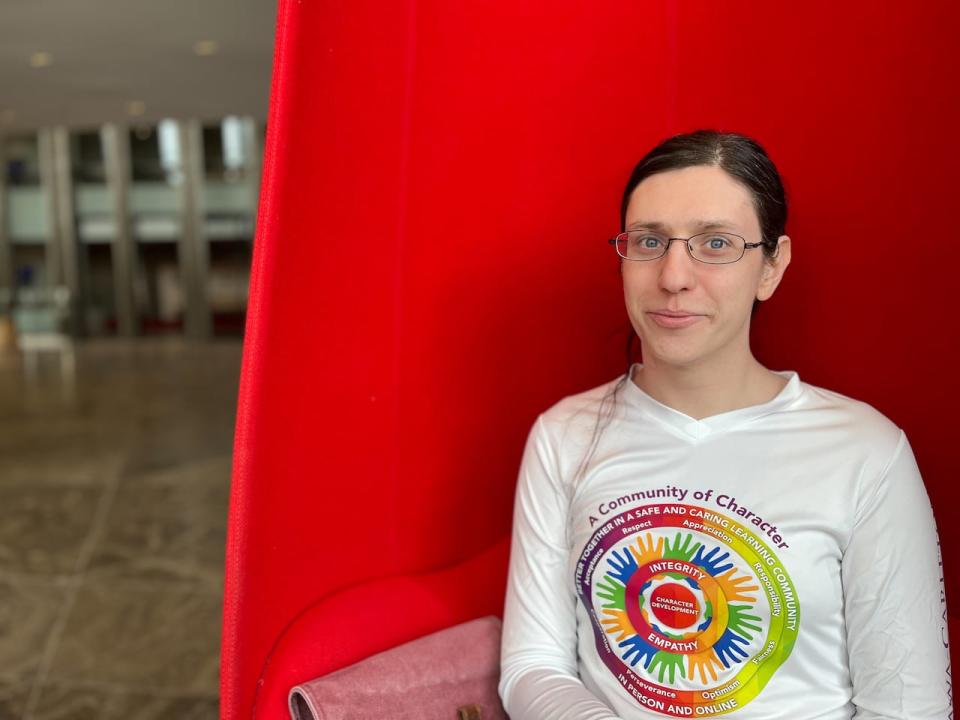Ottawa's largest school board moves toward inclusive commencement ceremonies

Ottawa's largest school board wants to officially open its end-of-year ceremonies to more students.
Some schools under the Ottawa-Carleton District School Board (OCDSB) have already made their graduation ceremonies more inclusive in recent years, according to Lyra Evans, the board's trustee for Rideau-Vanier/Rideau-Rockcliffe.
But a vote by OCDSB trustees next month could make wider participation at the ceremonies a requirement across all the board's schools.
"Graduation" and "commencement" have been used interchangeably in many places for some time, according to board chair Lynn Scott.
She points out that while most people may think of graduating as receiving a high school diploma, there are two other certificates students can receive: an Ontario Secondary School Certificate, which can be awarded to students who have met about half of the required 30 credits needed to receive their diploma; and a Certificate of Accomplishment, which may be awarded to those in special education programs that are more focused on developing life skills.
"Why wouldn't we want to recognize those students as well?" Scott asked Tuesday on CBC Radio's Ottawa Morning.
Evans stressed that no student will receive their high school diploma without meeting all the requirements, but "we are now going to say [inclusivity] is the expectation."
'Commencement,' not 'graduation'
The new policy, if approved, would also rename the proceedings "commencement ceremonies" and tweak the board's approach to awards.
Under the commencement model, students who had taken "a non-standard route through the high school experience," would still be recognized for their accomplishments, both academic and non academic, Scott said.
The new policy would leave it up to a school's principal to decide which awards, if any, are handed out at the ceremony, board spokesperson Diane Pernari wrote in an email to CBC.
LISTEN|OCDSB proposes more 'inclusive' graduations – for those who don't pass
The plaudits might be given out at a separate ceremony, and there may be a greater variety of awards given out, Pernari said.
When it comes to awards, a spring convocation poses logistical challenges for determining who should receive them, said Tasha Ausman, a professor at the University of Ottawa's Faculty of Education.
Since classes go until near the end of June, grades aren't always finalized until later. For that reason, determining who's top of the class and who barely squeaked by might not happen until later.
Mixed feedback so far
The board is seeking feedback until March 29, though Evans has already heard a mix of comments.
Some families have said it's great the board is welcoming students who might have struggled or followed "non-traditional paths" to reach the graduation stage, she said.
On the other hand, "I've heard from some parents who say, 'Well, my child worked very hard to graduate and if we're letting students who didn't work as hard walk the stage, does that somehow devalue the accomplishment that my child has gone through?'"
Evans doesn't think so.
"I don't think that's the case," she said. "I think everybody who gets to the end of a high school journey has worked very hard."

OCDSB trustee Lyra Evans says she's been hearing mixed feedback from parents. Some are in favour of making the ceremonies more inclusive, while others fear it will devalue their own child's accomplishments. (Robyn Bresnahan/CBC)
Ausman said she's seen a lot of concern on social media around the proposed policy revamp.
"There's quite a bit of vitriol out there about it just being a participation ribbon and everybody gets to cross the stage," she said.
But she points out there's a big difference between recognizing students with intellectual disabilities or those who are one credit short, and students who were truant for significant periods.
The revised policy will go to the board's ad-hoc policy committee on April 4 before a potential board vote April 24.
"There will, I expect, be changes in the language based on the feedback that we are getting from the community at large," Scott said.

